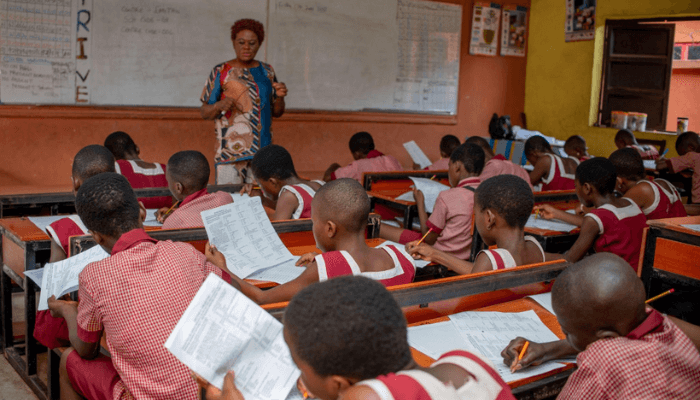Our Terms & Conditions | Our Privacy Policy
Microlearning and upskilling: Can Africa leapfrog traditional education?
There’s an old African proverb that says, “He who learns, teaches.” But what happens when the traditional means of learning are either too slow, too expensive, or too out of touch with the demands of a modern, digital economy? In a continent as young, vibrant, and fast-moving as Africa, the urgency for education that is practical, rapid, and scalable has never been more critical. Enter: microlearning and digital upskilling.
Africa is home to the world’s youngest population, with over 60 percent under the age of 25. And yet, many of its formal education systems remain entrenched in legacy models: rigid curricula, under-resourced institutions, and long lead times between learning and economic participation. For a generation that consumes information in 30-second clips, this system feels increasingly misaligned with the pace and priorities of their lives.
Worse still, the gap between education and employability continues to widen. Many graduates emerge from universities with degrees that don’t match the evolving needs of the job market. Particularly in sectors like technology, digital marketing, and AI.
Microlearning is the antithesis of traditional education. Think bite-sized lessons, focused learning objectives, and on-demand delivery. It’s learning that’s mobile-friendly, self-paced, and highly contextual. Whether it’s a five-minute tutorial on SQL or a short video on emotional intelligence, microlearning enables individuals to gain new skills without stepping into a classroom or leaving their jobs.
For Africa, where smartphone penetration is rising and connectivity is improving (albeit unevenly), microlearning presents an opportunity to scale learning at a pace that matches the continent’s ambition. Platforms like Coursera, Udemy, and local initiatives such as AltSchool Africa and Single Click Academy are proving that skill acquisition can be democratised, dynamic, and deeply relevant.
Read also: How one-building school facility limits pupils’ total education
Leapfrogging doesn’t mean skipping foundational learning; it means building differently. Just as Africa bypassed landlines to go mobile-first, there’s an opportunity to sidestep outdated educational infrastructure and instead focus on modular, tech-enabled upskilling pathways that are better aligned with the realities of the modern workforce.
From coding bootcamps to YouTube academies, young Africans are teaching themselves and each other. They’re not waiting for systemic reform; they’re learning in the now, for the now. And employers are beginning to catch on. Increasingly, hiring managers care less about what school you went to and more about what you can do.
This isn’t just about learning; it’s about employability, innovation, and economic survival. The World Bank estimates that Sub-Saharan Africa needs to create 15 to 20 million jobs annually to keep pace with its growing workforce. The only way to meet this demand is to equip people quickly and efficiently with skills that the market values.
Digital upskilling, when married with microlearning, becomes a potent force. It allows individuals to stay competitive in a rapidly changing landscape while giving businesses access to a more agile, adaptable talent pool. In sectors like fintech, healthtech, and agriculture, micro-skills in data analysis, UX design, and blockchain are already reshaping traditional roles.
Of course, this is not a silver bullet. Microlearning works best when learners are motivated, self-disciplined, and have access to devices and data. The digital divide still looms large in many parts of Africa. But this is where innovation meets policy. Governments, private sector actors, and development agencies must work together to improve digital infrastructure and ensure inclusivity.
Moreover, we must not entirely discard traditional education. Instead, what’s needed is a hybrid model. A model that values critical thinking and foundational literacy as much as it does job-ready digital skills. Microlearning should complement, not replace, deep learning.
In a world where knowledge is currency, Africa has the chance to not only catch up but lead. With the right mix of technology, intent, and investment, microlearning and digital upskilling can unlock the continent’s vast human capital.
As we often say at Mannyville, “It’s not just about access to information but access to transformation.” Africa doesn’t need to walk the slow path of educational reform; it can sprint into the future, one micro-lesson at a time.
Emmanuel Okwudili Asika is a seasoned business leader, digital equity advocate, and industry strategist with over two decades of experience in ICT and IT, spanning executive roles at Globacom Ltd and HP Inc. Asika has a BA in English (Lagos State University) and an MBA from Warwick Business School, with a Harvard Business School executive stint in ‘Building Businesses in Emerging Markets’.
Images are for reference only.Images and contents gathered automatic from google or 3rd party sources.All rights on the images and contents are with their legal original owners.



Comments are closed.